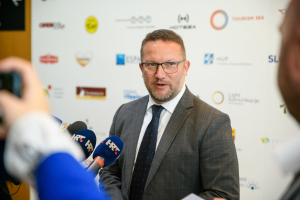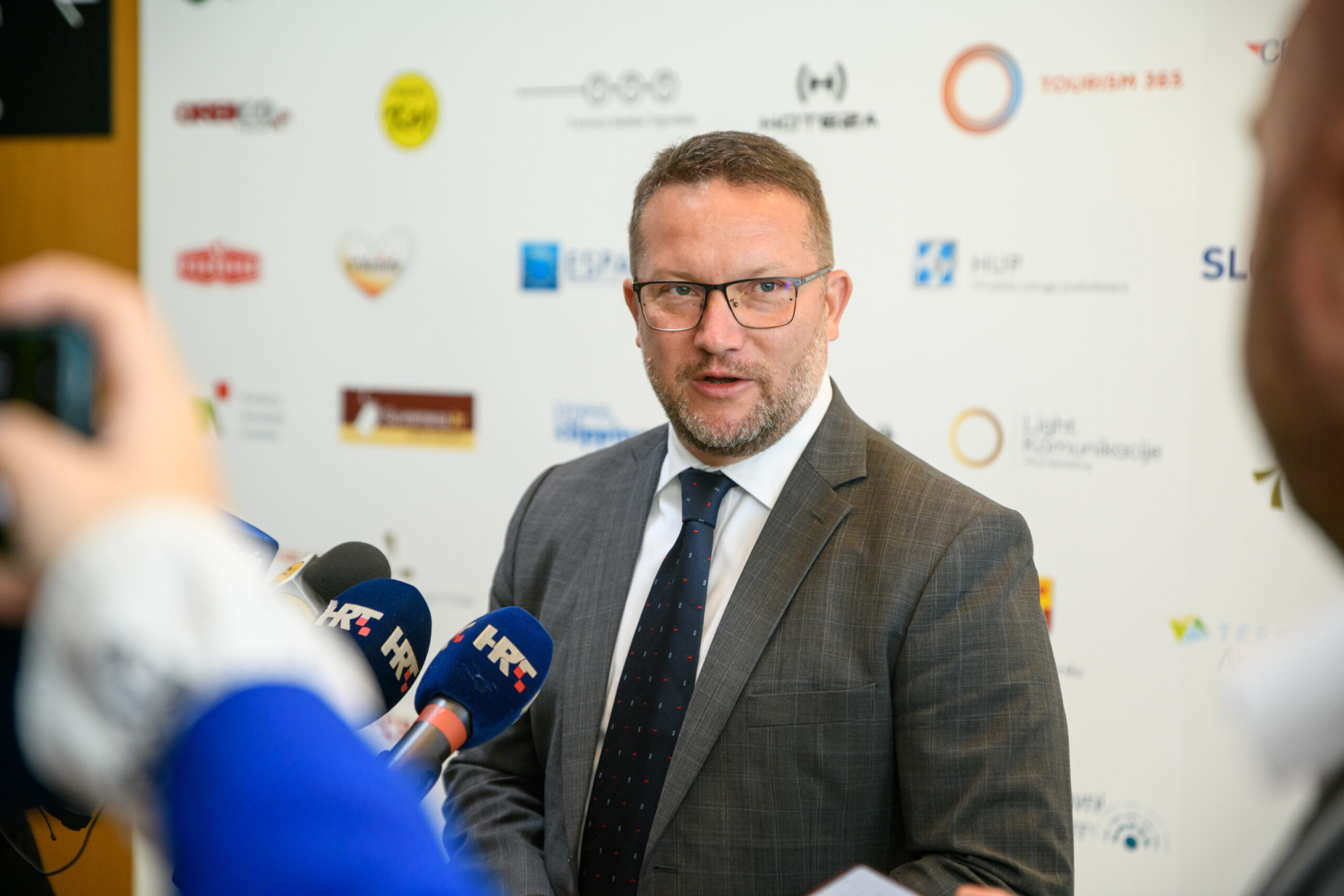Published: 27.9.2022
 Once again, the government is going back to the tried and tested political recipe: a national consultation on sanctions against Russia. The intention is obvious (and only those of blind faith fail to see it): to burn into people’s minds as deeply as possible the Fidesz logic that everything bad is caused by ‘Brussels sanctions.’
Once again, the government is going back to the tried and tested political recipe: a national consultation on sanctions against Russia. The intention is obvious (and only those of blind faith fail to see it): to burn into people’s minds as deeply as possible the Fidesz logic that everything bad is caused by ‘Brussels sanctions.’
They want to get it into our heads even more that if someone cannot pay their electricity bill, it is Brussels’ fault; if children in kindergartens only get half a bun, it is really Ursula von der Leyen who eats the other half; if half of someone’s pension is already gone with a normal shopping trip to the market, it is also the European Union’s fault. It is the same old recipe they have been working with for twelve years: everyone is evil, everyone is stupid, everyone is to blame but them. Clearly, the all-time low of this genre was when they tried to make Hungarians believe that EU funds were not coming because the Orbán government was resisting Brussels’ intention to have kindergarten boys turned into little girls. The current propaganda is undoubtedly more plausible and effective than that: the ‘misguided Brussels sanctions’ have caused the rise in utility bills, no one has asked the people about them and the Russians have not yet kneeled down from them, so it all makes no sense. And yet, in many places, this logic is quite flawed, too.
For example, it is a gross hoax to cite the war alone as the trigger for the escalation of the cost of fuel, since the petrol price cap was introduced at the beginning of November last year and the decision to fix the price of certain foodstuffs was taken in January this year. This could not have been due to the war, which only started at the end of February this year, meaning that the price caps had to be introduced regardless of Russian aggression and any subsequent sanctions, mainly because of the volatile euro-forint exchange rate and galloping inflation caused by the war against Brussels.So even the very premise of the sanctions is a gross misrepresentation, and it is a downright lie that the ‘Brussels elite’ decided on the sanctions without Hungarians, since the Hungarian government representatives, such as Prime Minister Viktor Orbán at the European Council, voted for all seven sanctions packages. Each and every one of them. There could also be a substantive debate about how much the sanctions are hurting Putin: no one is arguing that the war is not having a negative impact on the European economy, including that of Hungary, but factual analysis and apparent events all confirm the effectiveness of the sanctions. Why else would Putin call for their abolition in his energy blackmail?
Coming back to the planned national consultation, let us make one thing clear: when there are children freezing to death in Hungarian schools, when Hungarian families are facing a deepening crisis of living standards, it is not customary to buy a mobile phone company worth hundreds of billions of forints with public money, nor is it appropriate to launch propaganda campaigns worth tens of billions of forints. Every single forint belongs to the Hungarian people, so that they can get through the coming months as easily as possible: at a time like this, throwing away billions on knowingly targeted party political campaigns is more than inhumane.
But, if the government cannot be deterred from seeking unnecessary, false self-justification to continue its war in Brussels, they should at least have the decency to ask substantive questions. As a Hungarian MEP, I propose the following questions to the Fidesz government, for example, expecting them to be asked during the forthcoming consultation. These are real questions to which the government can get real answers. Provided that this is their aim.
1. Many people are not aware that 7 sanctions packages have already been adopted by the governments of the European Union Member States, including Hungary. The vast majority of these do not include restrictions on energy supplies, but rather, for example, restrictions on the travel of Russian political leaders and oligarchs, freezing their European bank accounts, banning the import of certain goods and equipment for export to cripple the Russian economy, restricting the transport of goods in transit, banning air transport, making it difficult for Russian and Belarusian banks to operate, freezing the reserves of the Russian National Bank or, for example, silencing the Russian propaganda media. The Fidesz government says all sanctions should be lifted by the end of the year. Some say this would only serve the interests of Putin and his business circles. Which do you agree with?
2. Fidesz claims that the Brussels sanctions are wrong and they were created by the „Brussels elite” alone. The fact is that the Hungarian government has indeed promised to veto several sanctions packages if its own position is not respected: in the case of the sixth sanctions package, for example, the Fidesz government lobbied – successfully, by the way – to remove Patriarch Kirill, an important ally of Putin, from the EU sanctions list. Some argue that the Hungarian government negotiated the EU sanctions inefficiently and not necessarily in the interests of the Hungarian people alone. Do you agree that if the government thinks the Brussels sanctions are wrong, Fidesz is really attacking its own decisions?
3. The government’s national consultation on the energy crisis aims to get Hungarian people’s views. Hungary currently charges a 27% VAT rate on both electricity and gas, and significantly higher prices mean significantly higher revenues for the government, meaning that the more energy costs, the more the state makes from it thanks to the high VAT rate. Some argue that it is time to cut the VAT rate on electricity and gas to five per cent or even zero, following the practice in other European countries. Do you agree with this initiative or would you rather continue to pay the record high VAT rates to the government?
4. According to an earlier announcement by the Fidesz government, a long-term gas contract has been signed with Russia, which „protects Hungarian consumers from gas price increases.” That said, the price of gas will still rise sevenfold. Some say the government lied about cheap gas and is profiteering from this, too. What do you think?
5. Paks is currently able to supply the entire population with electricity at a price of around 12 forints per kilowatt-hour, while the state sells the electricity generated here to local authorities for 462 forints per kilowatt-hour and to the Hungarian population for over 70 forints per kilowatt-hour, which is a multiple and unjustified increase. Why do you think the Fidesz state is profiteering from the Hungarian people and Hungarian municipalities? Some people say that in the current situation, electricity produced in Paks should be provided to both the population and the municipalities at the price of 12 forints. Do you agree with this or would you like to continue to pay a multiple and unjustified price?
6. Some argue that in times of social crisis, it is essential to address social problems in a prioritised way. Do you agree that families who have already been disconnected for one reason or another should be able to reconnect their electricity free of charge, and that a moratorium on disconnection should be introduced for the duration of the crisis, extending it beyond families to small and medium-sized enterprises, municipalities and NGOs?
7. Food prices in Hungary are rising at record rates and at a rapid pace, with bread, for example, up by 66% in one month: a rise that has not been recorded anywhere else in Europe. An earlier proposal was to provide a 20,000 HUF per month „Chance Coupon” food allowance to those in social need, mainly single-parent families, pensioners on low pensions, people with severe disabilities and those on social welfare. Do you agree that the state must provide real and tangible help in the face of the crisis?
These are real questions that beg real answers. Do you think they will also be asked in the consultation questionnaires? Rhetorical question.
István Ujhelyi
Member of the European Parliament
25 September, 2022.
